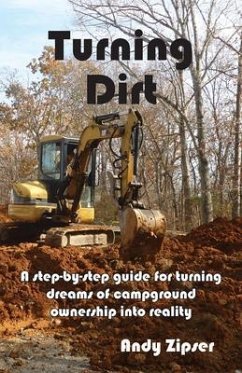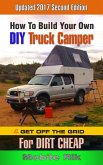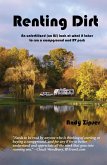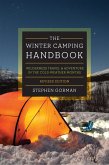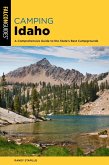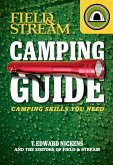In the space of just two years, as the pandemic drove people outdoors and office workers by the millions learned they could do their jobs almost anywhere, campgrounds and RV parks have become a hot investment sector. And yet, despite this explosion of interest, there is remarkably little published guidance on how to find, evaluate and buy a campground, much less on how to manage one. The few how-to guides on the subject are either outdated or superficial, rattling on about general small business practices (make sure you get liability insurance/know your target audience/keep accurate financial records, etc.) without ever delving into the peculiarities of a quirky, demanding industry that requires its operators to combine the skills of a farmer, hotelier and cruise-ship director all in one. Moreover, all of that comes against a backdrop of extraordinary challenges that go largely unmentioned, from extreme weather to pervasive labor shortages, even as fuel prices hitting historic highs threaten the industry's underlying business model.
So why is institutional money piling into this corner of the commercial real estate market? And is there any room left for the smaller players, the mom-and-pop operators who have traditionally built and run family campgrounds?
Headlines about multi-million dollar deals notwithstanding, there are in fact hundreds of campgrounds changing hands every year, and not all of them end up in an investment portfolio. With more than 12,000 private campgrounds in the United States, the consolidation trend now underway is still in its infancy, with abundant opportunities for small business entrepreneurs who want to jump into a lifestyle that combines work and home--provided they're willing to work their butts off. It's critically important, however, that anyone contemplating such a move go in with eyes wide open: there's an awful lot of Pollyannish drivel out there that makes running a campground sound like a spiritual mountaintop retreat. It's not. It's really hard work, and understanding that up front will save a lot of heartbreak down the road.
"Turning Dirt" was written for those who, despite such warnings, are determined to plunge ahead anyway. It draws on the author's near-decade of experience in looking for, buying and then operating a medium-sized campground in Virginia, but unlike his earlier book ("Renting Dirt"), it presents the lessons he learned from that history in a step-by-step, "how-to" format that is both comprehensive and timely. "Turning Dirt" will walk the reader through the initial process of determining what kind of campground to buy and where; explains the several ways a search for the right campground can be conducted, and how to screen the prospects that emerge; and details the questions that need to be answered during the 60-90 day period in which a purchase gets negotiated. But "Turning Dirt" then goes further, examining various aspects of a campground's operations that are unlike any other business and providing guideposts for navigating this strange new landscape.
Agnostic in outlook, "Turning Dirt:" does not prescribe any answers or set of solutions as the "right" approach to a complex industry marked by multiple ways of dealing with situations, but it raises issues and questions that prospective campground buyers need to consider beforehand. It also provides references for additional help, and ends with three appendices of sample documents to help campground buyers move ahead.
So why is institutional money piling into this corner of the commercial real estate market? And is there any room left for the smaller players, the mom-and-pop operators who have traditionally built and run family campgrounds?
Headlines about multi-million dollar deals notwithstanding, there are in fact hundreds of campgrounds changing hands every year, and not all of them end up in an investment portfolio. With more than 12,000 private campgrounds in the United States, the consolidation trend now underway is still in its infancy, with abundant opportunities for small business entrepreneurs who want to jump into a lifestyle that combines work and home--provided they're willing to work their butts off. It's critically important, however, that anyone contemplating such a move go in with eyes wide open: there's an awful lot of Pollyannish drivel out there that makes running a campground sound like a spiritual mountaintop retreat. It's not. It's really hard work, and understanding that up front will save a lot of heartbreak down the road.
"Turning Dirt" was written for those who, despite such warnings, are determined to plunge ahead anyway. It draws on the author's near-decade of experience in looking for, buying and then operating a medium-sized campground in Virginia, but unlike his earlier book ("Renting Dirt"), it presents the lessons he learned from that history in a step-by-step, "how-to" format that is both comprehensive and timely. "Turning Dirt" will walk the reader through the initial process of determining what kind of campground to buy and where; explains the several ways a search for the right campground can be conducted, and how to screen the prospects that emerge; and details the questions that need to be answered during the 60-90 day period in which a purchase gets negotiated. But "Turning Dirt" then goes further, examining various aspects of a campground's operations that are unlike any other business and providing guideposts for navigating this strange new landscape.
Agnostic in outlook, "Turning Dirt:" does not prescribe any answers or set of solutions as the "right" approach to a complex industry marked by multiple ways of dealing with situations, but it raises issues and questions that prospective campground buyers need to consider beforehand. It also provides references for additional help, and ends with three appendices of sample documents to help campground buyers move ahead.
Dieser Download kann aus rechtlichen Gründen nur mit Rechnungsadresse in A, D ausgeliefert werden.

